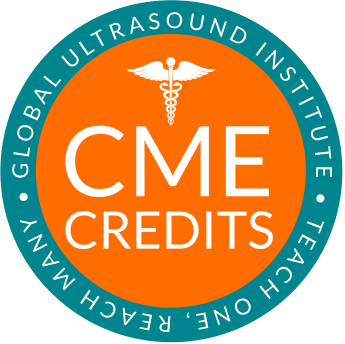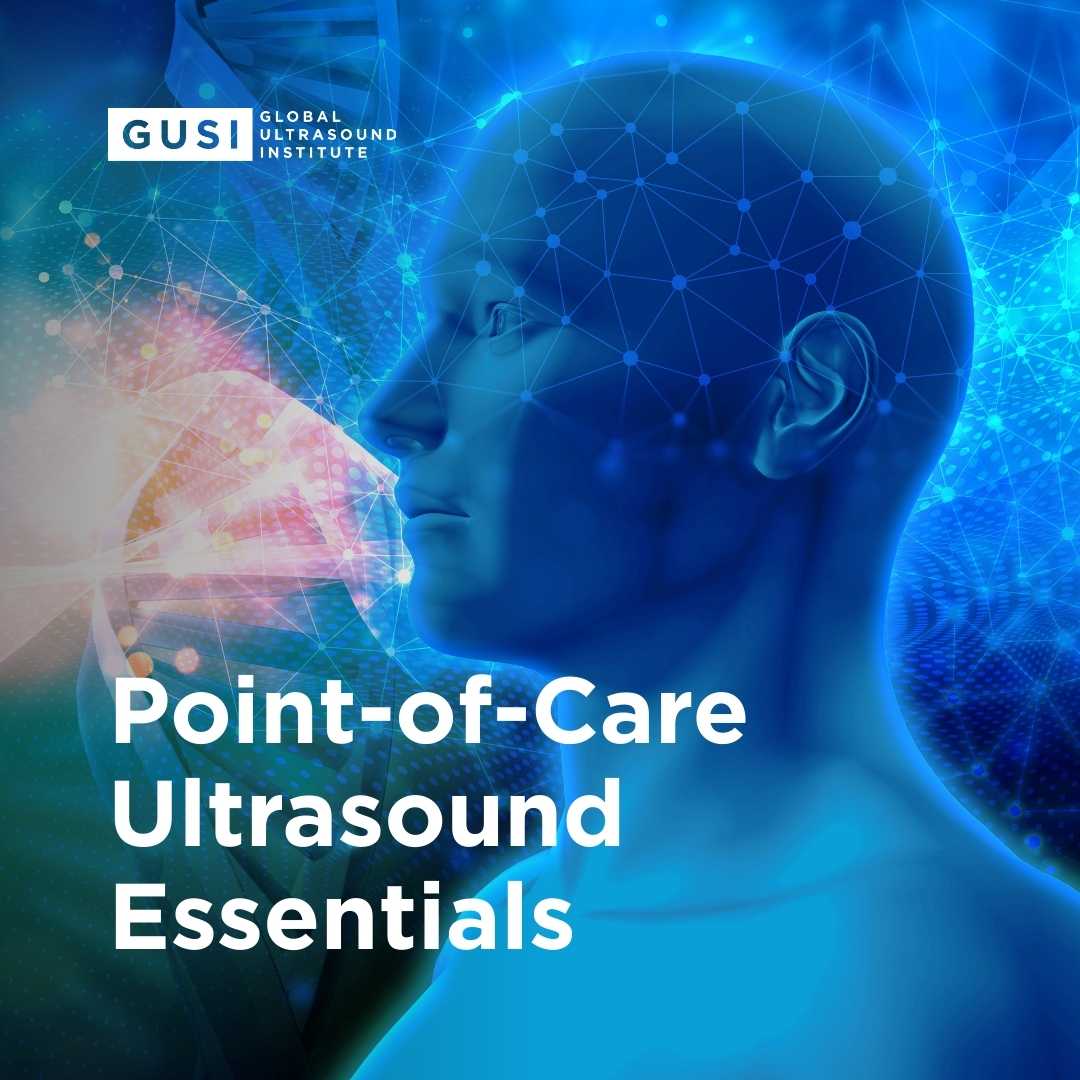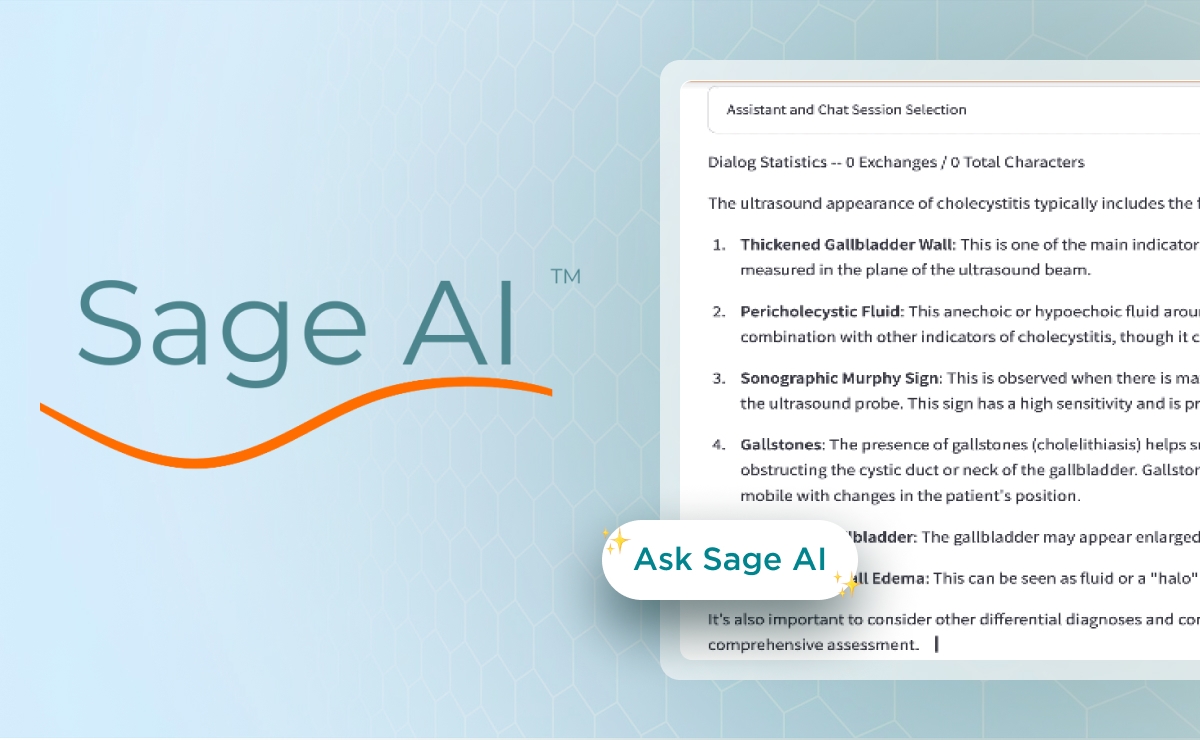From: $164 / year
Point of Care Ultrasound Essentials Course
The Point of Care Ultrasound Essentials course offers 25 CME hours and equips healthcare providers with essential ultrasound skills to improve real-time diagnostics and patient care in clinical settings.

From: $164 / year

25

Course Stats
Modules
Topics
Quizzes
Rating
Point of Care Ultrasound Essentials Course Description:
The Point of Care Ultrasound Essentials course is designed for healthcare professionals looking to integrate point-of-care ultrasound (POCUS) into their clinical practice, offering 25 CME hours upon completion. This course provides a comprehensive introduction to ultrasound examinations performed at the point of care, enabling clinicians to make rapid, informed decisions across emergency, inpatient, and outpatient settings.
Participants will learn ultrasound fundamentals, key anatomical targets, and essential scanning techniques, applicable to a wide range of clinical scenarios.
Through practical modules and hands-on training, clinicians will gain the confidence and skills needed to perform real-time ultrasound exams, improving diagnostic accuracy and patient care outcomes.
Course Curriculum
Ultrasound Basics
Ultrasound Basics Physics and Probes
Ultrasound Basics Scanning Technique
Ultrasound Basics Machine Settings
Ultrasound Basics Artifacts
Ultrasound Basics Summary
FAST/E-FAST
FAST/E-FAST Case and Literature
FAST/E-FAST Scanning Technique Part 1
FAST/E-FAST Scanning Technique Part 2
FAST/E-FAST Pathology and Pitfalls (8m24s)
FAST/E-FAST Troubleshooting
FAST/E-FAST Clinical Integration
FAST/E-FAST Summary
Cardiac Echo
Cardiac Echo Case and Literature
Cardiac Echo Scanning Technique
Cardiac Echo Pathology and Pitfalls Part 1
Cardiac Echo Pathology and Pitfalls Part 2
Cardiac Echo Troubleshooting Part 1
Cardiac Echo Troubleshooting Part 2
Cardiac Echo Clinical Integration Part 1
Cardiac Echo Clinical Integration Part 2
Cardiac Echo Clinical Integration Part 3
Cardiac Echo Summary
Pulmonology
Pulmonology Case and Literature
Pulmonology Scanning Technique
Pulmonology Pathology and Pitfalls
Pulmonology Troubleshooting
Pulmonology Clinical Integration
Pulmonology Summary
COVID-19 Lung Disease
Gallbladder
Gallbladder Case and Literature
Gallbladder Scanning Technique
Gallbladder Pathology and Pitfalls
Gallbladder Troubleshooting
Gallbladder Clinical Integration
Gallbladder Summary
Abdominal Aortic Aneurysm
Abdominal Aortic Aneurysm Case and Literature
Abdominal Aortic Aneurysm Scanning Technique
Abdominal Aortic Aneurysm Pathology and Pitfalls
Abdominal Aortic Aneurysm Troubleshooting
Abdominal Aortic Aneurysm Clinical Integration
Abdominal Aortic Aneurysm Summary
Renal
Renal Case and Literature
Renal Scanning Technique
Renal Pathology and Pitfalls
Renal Troubleshooting
Renal Clinical Integration
Renal Summary
Deep Venous Thrombosis
DVT Case and Literature
DVT Scanning Technique
DVT Pathology and Pitfalls
DVT Troubleshooting
DVT Clinical Integration
DVT Summary
Musculoskeletal
Musculoskeletal Injections: General Principles
Carpal Tunnel Syndrome: Diagnosis and US Guided Injection
Diagnostic Knee: Scanning Technique
Diagnostic Knee: US Guided Injection
Diagnostic Shoulder: Scanning Technique
MSK Shoulder: US Guided Injection
Anterior Hip: Effusion Diagnosis, & Ultrasound-Guided Injection
Musculoskeletal Pathology Review
Posterior Lower Leg: Achilles Tendon, Gastrocnemius, Soleus
Skin Soft Tissue
Skin Soft Tissue Case and Literature
Skin Soft Tissue Scanning Technique
Skin Soft Tissue Pathology and Pitfalls
Skin Soft Tissue Troubleshooting
Skin Soft Tissue Clinical Integration
Skin Soft Tissue Summary
Dermatology
Introduction to Dermatologic Ultrasound
Dermatologic Sonographic Anatomy
Dermatologic Lumps & Bumps
Common Nail Conditions
Lesions Suspicious for Skin Cancer
Inflammatory Dermatologic Conditions
OB 1st Trimester
OB 1st Tri Case & Literature
OB 1st Tri Scanning Technique & Image Interpretation
OB 1st Tri Pathology & Pitfalls
OB 1st Tri Troubleshooting
OB 1st Tri Clinical Integration
OB 1st Tri Summary
OB 2nd & 3rd Trimesters
OB 2nd & 3rd Trimester Case & Literature
OB 2nd & 3rd Trimester Scanning Technique
OB 2nd & 3rd Trimester Pathology & Pitfalls
OB 2nd & 3rd Trimester Troubleshooting
OB 2nd & 3rd Trimester Clinical Integration
OB 2nd & 3rd Trimester Summary
Global Ultrasound Institute proudly works with top universities, institutions and medical facilities across the United States and around the world
Why Choose Global Ultrasound Institute?
Expert-Led Training
Flexible Learning
Innovative Tools
Global Impact
What you will experience with GUSI’s Point of Care Ultrasound Essentials Course
DASHBOARD
Learning on demand
scanFolio Archive

SaGE Ai
What 18,000+ Clinicians Are Saying
Ready to Advance Your Medical Practice?
- Built by clinicians, for clinicians
- Backed by global POCUS training experience
- Trusted by providers across over 60+ countries

Didn’t find your answer?
No worries! If you have any other questions or need more information, feel free to reach out directly.
Have more questions? Send us a message.
Point of Care Ultrasound Essentials Course FAQ’s
Who should take the Point of Care Ultrasound Essentials course?
This course is ideal for emergency medicine physicians, family medicine providers, hospitalists, intensivists, primary care doctors, pediatricians, trauma specialists, and critical care professionals.
What will I learn in the Point of Care Ultrasound Essentials course?
The course covers ultrasound fundamentals, key anatomical structures, and scanning techniques for performing essential point-of-care exams, including those for the heart, lungs, abdomen, and musculoskeletal system.
How will the Point of Care Ultrasound Essentials course improve my practice?
By incorporating POCUS into your practice, you’ll be able to make faster, more accurate clinical decisions, improving diagnostic capabilities and enhancing patient care outcomes in various healthcare environments.
Is there any commercial bias in GUSI’s educational content?
No. All GUSI content is created independently. We collect Conflict of Interest (COI) disclosures from all course contributors to ensure that no one involved has financial relationships that could bias the educational material. To ensure transparency and trust, we follow best practices in medical education to make sure our content remains objective, evidence-based, and free of commercial influence, especially from companies that sell ultrasound devices or related products.
How much does your POCUS training cost?
Empowerment and health equity are the heart of GUSI’s core values. GUSI’s mission is to make the best quality POCUS training affordable and accessible for clinicians worldwide. Price structure varies based on institution, practice setting, and number of participants. Please see our courses for specific pricing.
What medical specialties can apply to the program?
GUSI founders are family doctors who have trained hundreds of physicians in various specialties including family medicine, internal medicine, pediatrics, OB, and emergency medicine. Any clinician of any specialty is eligible to apply.
Can medical professionals from other fields, train with GUSI?
Yes. GUSI believes POCUS is the most revolutionary addition to the physical exam since the stethoscope. Our training programs are designed for all medical professionals who perform physical exams. This includes nurse practitioners, physician assistants, nurses, clinical officers, physical therapists, paramedics, EMTs, and more. Everyone can benefit from GUSI’s comprehensive ultrasound training to enhance their clinical practice.
Do you accept applicants from outside of the United States?
Yes. With backgrounds in global health, GUSI faculty have taught POCUS across Africa, Asia, North and South America. We currently support learners in over 120 countries worldwide. In alignment with our mission for health equity and empowerment, GUSI adjusts its pricing structure for resource-limited settings to improve access and impact.
What does the GUSI curriculum entail?
The GUSI curriculum equips healthcare providers with the skills to confidently use point-of-care ultrasound (POCUS) across diverse clinical settings.
It combines online coursework, review and assessments to support your journey from foundational knowledge to hands-on scanning expertise.
You can choose from flexible options, including:
- In-person 1–2 day courses for rapid skills development
- Comprehensive fellowship programs with structured mentorship and certification
- Self-paced online learning backed by expert-reviewed scan feedback
GUSI has supported clinicians in over 120 countries and adapts to the needs of global learners and health systems.
Will participants receive a certificate upon completion of the course?
Yes. GUSI provides a certificate of completion and a transcript with lessons completed and test scores. Residency directors also receive a template for minimum scanning competency based on AAFP curriculum guidelines.
Disclaimer
The AAFP has reviewed GUSI’s Essentials Course in Point of Care Ultrasound and deemed it acceptable for up to 25.00 Enduring Materials, Self-Study AAFP Prescribed credit. Term of Approval is from 06/01/2025 to 06/01/2026. Physicians should claim only the credit commensurate with the extent of their participation in the activity. AAFP Activity #104973.
View GUSI’s CME and Disclosure of Conflicts of Interest Policy. View GUSI’s Statement to Learners on Potential Commercial Bias.

Ready to master the Point of Care Ultrasound Essentials Course?












